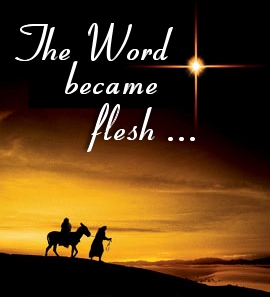 Oliver is a young, orphan boy who, at the tender age of nine, lives each day with other orphans at the ‘workhouse.’ His daily routine is much like every boy in the orphanage. He isn’t a trouble maker, but he does something no one else is willing to do. After finishing his bowl of gruel (porridge), with a trembling hand, he returns to food line and utters the famous line, “Please Sir, I want some more…”
Oliver is a young, orphan boy who, at the tender age of nine, lives each day with other orphans at the ‘workhouse.’ His daily routine is much like every boy in the orphanage. He isn’t a trouble maker, but he does something no one else is willing to do. After finishing his bowl of gruel (porridge), with a trembling hand, he returns to food line and utters the famous line, “Please Sir, I want some more…”
Charles Dickens authors this literally piece and many have adapted Oliver Twist to their own version of orphans and the homeless. The story is an interesting one, but our focus is centered on the words of this fictitious nine-year old, “…I want some more.” If we’re truthful with ourselves we would admit that each of us, in some form or fashion want more. But as we’ve studied previous, what more do we want?
Let’s continue the study of the hymn written and composed by Philip Bliss in 1873. Interestingly enough, this song was penned less than 35 years after Dickens wrote Oliver Twist. As you might remember, we sing the word ‘more’ twenty-four (24) times during the course of song “More Holiness Give Me”. Let’s continue our deeper examination of what more we could possibly be aspiring toward.
In verse two we sing (and seek); more gratitude, more trust, more pride and more hope . More tears, more pain, more meekness and more praise. One by one we consider what are we asking God to give us ‘more’ of:

1) More gratitude give me… Our prayers are often laced with thankfulness. We’re thankful for the day, the food, the good night’s rest so why ask for more thankfulness? Gratitude is synonymous with thankfulness but often we ramble out our prayer of thanks without processing why we have what we have. God has given us EVERYTHING! For that alone we should have gratitude. Personally, I don’t get tired of hearing thank you from my children. Do you suppose God is the same?
2) More trust in the Lord… David wrote in Psalm 20:7, “Some boast (trust) in chariots and some in horses, But we will boast (trust) in the name of the Lord, our God.” With some much self-proclaimed wisdom, our culture and this present generation has come to trust in self. So much has been accomplished and achieved during the last 50 years we have become masters in our own right. What do we trust? Who do we trust? Would that we prayer for more trust in the Lord. “…the foolishness of God is wiser than men, and the weakness of God is stronger than men.”
3) More pride in His glory. Each of us knows the swell of pride we feel when our team is victorious. We take pride in knowing we have succeeded in this task or that accomplishment. But more pride in HIS glory means I take pride in giving God glory. We humble ourselves and take pride in knowing our God, He is Alive.
4) More hope in His word. The word “hope” can mean to long for something, wish for it; or it can mean trust or confidence. Our hope in God’s word is not to wish for it to be what it claims to be, but to put our trust and our confidence in His word. You’ll remember we sang that we pray for more trust in the Lord (previous line), and now we turn our prayer to be confident (hope) in His word!
5) More tears for His sorrows. Each week we gather and remember the Lord’s death, burial and resurrection. With the Lord’s Supper we keep Jesus’ sacrifice every in our minds and hearts. But be careful that this time doesn’t become routine. Remember the words of Isaiah (chapter 53) when he prophesy’s about the Messiah saying, “…He is despised and rejected of men; a man of sorrows, and acquainted with grief…” (KJV) Do we weep when we consider His death? We need more tears for His sorrows.
6) More pain at His grief. Again, looking to Isaiah 53 we are reminded of His grief. As we sing this hymn we are asking that we feel the pain, as we shed the tears, for our Savior’s grief. Undoubtedly you’ve said something like, “That breaks my heart!” Simply an expression of pain for someone’s grief. Does Jesus’ suffering (grief) break your heart?
7) More meekness in trial. My mind immediately goes to the book of Matthew and the words of Jesus in the 5th chapter, “…whoever slaps you on your right cheek, turn to him the other also.” (vs. 39) But we shouldn’t be surprised when we consider what Jesus said just a few sentences earlier (vs. 5), “Blessed are the meek: for they shall inherit the earth.” When someone slaps you down (trials), are you fighting mad…or meekly enduring?
8) More praise for relief. In baseball there is a position known as the ‘relief pitcher.’ The man who take over for the ‘starting’ pitcher. He may be there because the starter was injured or perhaps just exhausted. Either way, there is a relief for the starter. In the sport of baseball the relief pitcher isn’t always praised. He may fail to ‘provide’ the relief he was called to deliver. But in the case of Jesus, He is our answer to the injury and exhaustion we feel on a daily basis. He is our relief, our salvation, and He never fails. When we understand and accept Him in that way, we’ll know that we need to give Him more praise for our salvation…He is our relief…



















